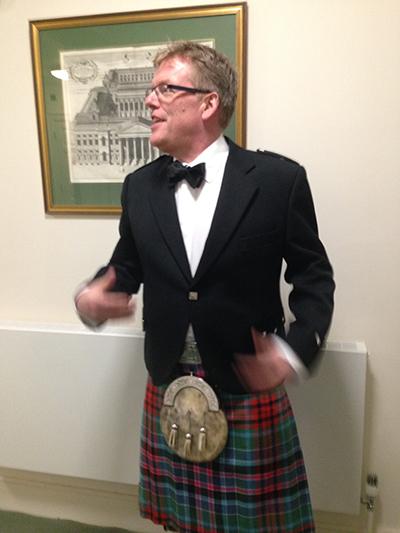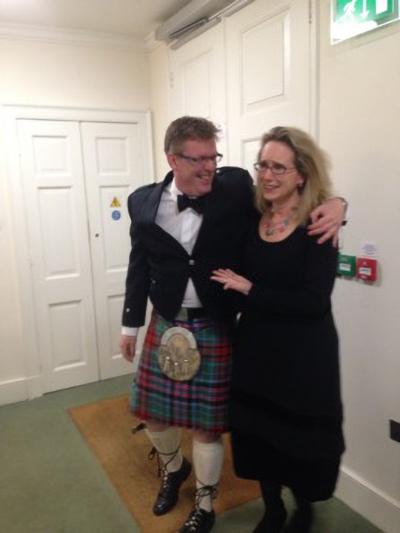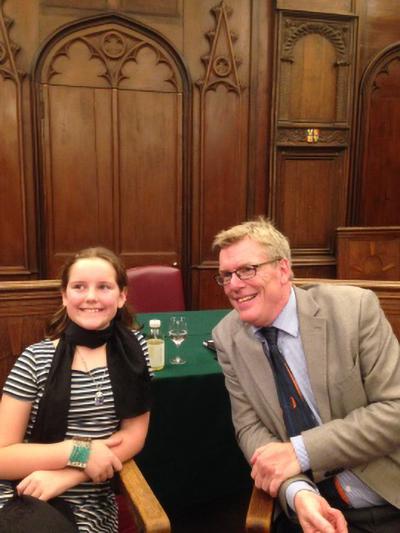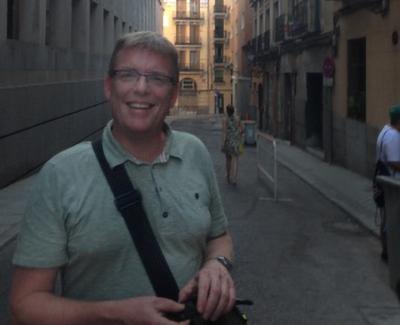
Obituary for University College by Annalise Acorn. The published version is available here.

John Gardner, who has died of oesophageal cancer at 54, was Professor of Jurisprudence at University College from 2000 to 2016 and a Senior Research Fellow of All Souls College from 2016. John was recognized at the young age of 35 as a worthy successor to the chair held by luminaries H.L.A. Hart and Ronald Dworkin. His work is characterized by reverence for rationality and an abiding sense of the value of the human capacity to give reasons and take responsibility. The concept of duty played a central role in his philosophy. Likewise, he held a deep personal conviction that, not just the substance, but the joy of life lay in the fulfillment of duty. As John wrote in his book From Personal Life to Private Law (OUP 2018), “it is a mistake to think of our duties as burdens that get in the way of our living our lives well.” He was cheerfully and tirelessly dutiful in every aspect of his life. He was uncommonly generous in his contributions to college life both at Univ and All Souls. He was dedicated to his students, meeting with them regularly even as he approached the end of his life. He was lovingly committed to his wife Jenny and devoted to his daughter Audra and his two stepchildren Henrik and Annika. He was fiercely loyal to his many friends.

His influence on jurisprudence and legal philosophy in the 21st century cannot be overstated. The shadow that John’s towering figure cast was not merely ‘transatlantic,’ as one legal philosopher put it. His influence reached around the globe. He held visiting positions at Columbia University, Yale University, the University of Texas at Austin, Princeton University, the Australian National University, the University of Auckland, and Cornell University. John was elected a Fellow of the British Academy in 2013. Five international conferences were held on his work, one at the Australian National University in Canberra, two at the Hebrew University of Jerusalem, one at the University of Edinburgh and one at Wadham College, Oxford. Kimberley Brownlee gives us a flavour of the nature of John’s influence and the way that he fostered scholarly community when she writes, “There is an informal club of students, young academics and more established academics who regularly check John Gardner’s website to see if he has posted new papers in progress or forthcoming articles. I have been a card-carrying member of this club for close to 10 years, and many of Gardner’s papers are old friends.”

John was born on March 23, 1965 in Glasgow, Scotland. Both his mother Sylvia Gardner (née Hayward-Jones) and his father William Russell Williamson Gardner were Germanists. His father was a Senior Lecturer in the German Department of Glasgow University and Chairman of the Goethe Institute in Glasgow. John’s brother David, with whom he had a close and affectionate relationship throughout his life, is 3 years his junior. The brothers had a shared passion for graphic design which John carried over into his later life. The boys co-created many original comics books. The Gardner family culture was one of lively intellectual engagement. John’s maternal grandfather was a graduate of Oxford and a powerful thinker and he and John’s mother Sylvia engaged John at an early age in philosophical conversations. The sophistication and intensity of everyday conversations around the dinner table and on the school run was enriched by an extraordinary range of connections to the German literati of the day. Throughout John’s upbringing, the Gardner home in Glasgow was a social and intellectual gathering place for the likes of Wim Wenders and Gunter Grass. Being included as a boy in such rarified discussions, both in his immediate family and with distinguished visitors, did much to cultivate John’s love of “high-octane” conversation.
John graduated from Glasgow Academy in 1982. It was there that he met his contemporary Colin Kidd who later became a colleague at All Souls College. John enjoyed reminiscing about how amazed he had been by Colin’s discipline and dedication as a student. John gave considerable credit to this boyhood friendship for the early cultivation of his own taste for conceptual precision and scholarly rigour.
In the autumn of 1983 John arrived in New College, Oxford. His first inclination was to follow in his parents’ footsteps and to read Modern Languages. But he switched to Law before that Michaelmas term began. It was in his second year of Law at New College that Nicola Lacey became John’s main law tutor. Niki was a key influence in John’s life and work, beginning with the fateful nudge she gave him toward legal philosophy. Not only was John intrigued by Niki’s formidable grasp of jurisprudential thought, it was Niki who encouraged John to take tutorials in moral philosophy from Jonathan Glover. John often spoke of his 8 weeks in conversation with Glover as having cured him of all tendencies toward moral relativism and fixed his commitments as an “in-your-face moral realist.”
After graduating with a First Class Bachelor of Arts in the Honour School of Jurisprudence, John went on to do the BCL where he dazzled instructors and fellow students alike with his extraordinarily agile intellect and his uncanny capacity to see, describe and tinker with the geometry and architecture of legal and philosophical argument. He could hold steady multiple, interlocking logical structures in at least three dimensions. He could readily see where the pieces of the puzzle fit and, aided by his wonderfully expressive hand gestures, he could precisely describe the shape of the problem when the pieces did not fit. In an interview published on the Oxford University Faculty of Law website in April of 2019 John quipped, “My former tutor Niki Lacey has often worried that I see it all as a giant game of Sudoku. But what’s wrong with Sudoku?”
John expressed surprise at having been elected in 1986 to a Prize Fellowship (now Examination Fellowship) at All Souls College. But neither that, nor his being awarded the Vinerian Scholarship for the top BCL results in 1987, came as a surprise to anyone else. John was the obvious choice. The intellectual sustenance John found at All Souls exemplified the genius of the place, bringing into fellowship, on terms of formal equality, senior luminaries and brilliant young students. As John explained, “Cohen, Honoré, Parfit and Sen were now my colleagues as well as my teachers, and to make matters worse they treated me as such. They and other senior Fellows talked to me with enthusiasm about intellectual puzzles and listened to me as if I knew what I was talking about. The only way to return the compliment was to know what I was talking about – to professionalize myself as quickly as possible.” Whilst he was vitally energized in these relationships, John sometimes found dinners in College (which were then mandatory in a certain number per term) to be anxiety-provoking. The famously eccentric Derek Parfit, John recalled, would disconcertingly tend to pick up on some chance fragment of John’s contribution to the conversation and begin to dissect it in microscopic philosophical detail. Parfit suggested that the two should meet to discuss some matter further. John readily assented. Then Parfit inquired, “Are you free at 3:00 a.m. on Tuesday?” To which John, of course answered, “Yes, I am.” John turned up at the agreed time. The two had a wonderful discussion, neither remarking at all on the unusual hour. Parfit’s sensibility and his book Reasons and Persons remained a profound influence on John’s work throughout his life.

John also recalled with affection catching a ride from time to time from All Souls to the Oxford train station with Isaiah Berlin who had a driver for that purpose. John was then commuting to London where he lived with his partner, later his first wife, Margaret Bolton. Margaret was then part of the Prime Minister’s Strategy unit to review the charitable and voluntary sectors. John had great respect for her work. It was perhaps his perception of the striking difference between his job and Margaret’s that gave rise to his belief in a strict division of labour between the philosopher and the policy advocate. He was later to remark in an interview “It is not my job, as a philosopher of law, to act as a consultant or a conscience for the law industry, or for any other part of the machinery of public power. Rather, I am engaged in the scholarly study of some relatively abstract aspects of that industry and of that machinery. I am interested in understanding its nature (good or bad) and the logic of its discourse (precise or muddled).” Much later, elaborating a related idea, John said, “These days everybody wants to be a philosophical architect. But I have made a perfectly good living as a philosophical plumber.” When I reminded him a few years later of this remark he replied, “Did I say that? Well, well. I’m wittier than I think.”

It was also as a Prize Fellow that John began his intellectual and personal friendship with Tony Honoré. John co-taught seminars with Tony in Jurisprudence and Political Theory for 30 years, first focussing on “Causation and the Law” and later on “Law and the State.” Though John’s and Tony’s approaches to legal philosophy were very different, the crosspollination between the two was exceptionally fruitful. John would frequently set himself the task of constructing analytical scaffolding to support some of Tony’s most arresting insights. For example, From Personal Life to Private Law lends detailed analytical backup to Tony’s views about the importance of taking responsible ownership of the results of one’s actions, even when those outcomes were beyond one’s control. Taking responsibility for these aspects of moral luck was, for both John and Tony essential to the intelligibility and even the possibility of human biography. As John writes in a chapter entitled, “That’s the Story of My Life,” “…results matter, or are capable of mattering, in law as much as in love.” As Tony aptly observed at a party John held in October of 2018 to celebrate their having taught together for 30 years, “John belongs to the Scottish Enlightenment.” To this John, with his usual good nature and wit, replied, “I’m just a bit of a latecomer.”
After finishing his BCL, John qualified and was admitted to the Bar of England and Wales and became a member of the Inner Temple in London. John was a Bencher of the Honourable Society of the Inner Temple from 2003. In 1994 he obtained his DPhil in Law with Joseph Raz as his thesis supervisor (or doktorvater, as John would say) and Raz’s influence on John’s work remained significant throughout his life. John also acknowledged an enormous intellectual debt to his teachers John Finnis and Ronald Dworkin. During the late 80’s, he also got to know Herbert Hart whom he greatly admired. John’s introduction to the second edition of Hart’s Punishment and Responsibility: Essays in the Philosophy of Law reveals many of the affinities, and some of the important differences, between the two thinkers. From 1991 to 1996 John was a Fellow and Tutor in Law at Brasenose College. From 1996 – 2000, he was Reader in Legal Philosophy at Kings College, London. During those years he had particularly fruitful collaborations with two long-time legal philosophical friends, Stephen Shute and Timothy Macklem.
In 2007 he published Offences and Defences with Oxford University Press which contains “The Mark of Responsibility,” his inaugural lecture as Professor of Jurisprudence. This remains a signature piece, elaborating his distinction between basic and consequential responsibility. The book to some extent pegged him as a criminal law theorist, a categorization he always resisted. Rather, he viewed the puzzles posed by legal doctrine broadly understood as the object of his philosophical interest and attention. The publication of Offences and Defences, however, allowed him to draw something of a line around his criminal law work. His next book, Law as a Leap of Faith: Essays on Law in General published in 2012 (again with OUP) collects John’s work on general jurisprudence. There he juxtaposes law and legal systems with other kinds of normative systems such as games, associations, religions and explores the logic of these relations.
John’s 2018 book From Personal Life to Private Law elaborates one of his core views- the idea that there is no sharp divide between law and life. He writes, “The law exists to improve people’s conformity with reasons that already apply to them, including but not limited to reasons to act.” And “…what private law would have us do is best understood by reflecting on what we should be doing quite apart from private law, which obviously entails reflection on the reasons why we should be doing it.” Indeed, quite apart from John’s many provocative observations about the law of contract and tort, the purpose of general damages and his fascinating analysis of the right way to look at private law, the book stands on its own as a rich source of wisdom about how to live a good life.
John also made extremely important contributions to the theory of sexual assault law both in “The Wrongness of Rape” co-authored with Stephen Shute in 2000 and reprinted in Offences and Defences and in his paradigm-shifting 2017 article “The Opposite of Rape.”
John was married to Jennifer Kotilaine in 2012 in the Univ chapel by chaplain Andrew Gregory. He was a devoted stepfather to her children Henrik and Annika and threw himself into raising them as his own. John and Jenny’s daughter Audra was christened by the Bishop of London in the Temple Church in 2009. Jenny was soon also to qualify as a barrister and become a member of the Inner Temple. John was passionately proud and supportive of Jenny’s work as a barrister and he loved to marvel at her scrupulous accuracy as a legal draftsperson. Their family life was gloriously happy; resplendent with openhearted conversation, good food and creativity. John enjoyed drawing on his relationships with his children as the source of many philosophical examples. His discussion in From Personal Life to Private Law of picking Annika up after drama rehearsal contains the core elaboration of his views about reasons and duties. He heartily approved of Henrik’s decision to pursue studies in philosophy at the University of Edinburgh and was proud of his philosophical gifts.
John made extraordinarily high demands upon himself in every sphere of life. Indeed, as a statutory professor at Univ he was widely regarded as an outlier in terms of the amount of time and energy he gave, not only to leadership in legal philosophy within the Oxford Faculties of Law and Philosophy, but also to the common life of Univ. John was IT Fellow at Univ for many years and he designed, and in large part executed, Univ’s first website and gave frequent attention to it thereafter. As John Finnis so aptly put it in his wonderful remarks written in 2016 when John Gardner was leaving Univ to take up his position at All Souls, “Like all his publications and sites on the web and elsewhere, this showed to advantage his accomplishment as a designer with a natural and cultivated taste for the economical and elegant.” In his rooms in Logic Lane, John carried on the tradition established by Hart and Dworkin of holding weekly philosophical discussions with members of the University and others. He also created, organized and secured funding for the H.L.A. Hart Fellowship at Univ for visiting scholars in law and philosophy. Over 40 visiting H.L.A. Hart Fellows benefitted greatly from that program.
John also contributed extensively to Univ’s statutes. To quote John Finnis again, “Building with characteristic willingness, creativity and elegance on a substantial redraft left to him in 2010, John re-thought and perfected the total replacement of the Statutes which has been approved by the Privy Council this summer. (The office of Keeper of the Statutes was created to give public witness to this undertaking and, in short order, achievement.) … Future Fellows of Univ will thank him for these very tangible reminders of his talents and his hard work for common good.”
One very telling story involves the care John gave to a brood of ducklings whose mother had, with insufficient advance planning, built her nest in the high-walled garden off his rooms in Logic Lane. It was a time of particularly pressing professional demands for John. Nevertheless, confronted with the ducklings’ predicament, John, for the entire time of their fledging, made frequent dashes out of his rooms to scare off magpies and other predators. When the time came for the ducklings to find water, not yet being able to fly, they were trapped. He continued as their protector, herding the ducklings out of the garden gate, down Merton street, into Christchurch meadow and beyond to the River Cherwell.
As a graduate supervisor John was superhumanly energetic, generous and attentive. While he set scrupulously high standards for his students, he always engaged with them from a place of respect and encouragement. He was gifted at seeing the potential in his students’ and others’ thoughts, excavating what was of value and pointing the way to more careful and coherent development of ideas. He was also lavishly generous with pastoral care of his students, or one might better say, at engaging with them as a true intellectual friend. One doctoral student of John’s reported being particularly grateful for, and moved by, his having told her, “I don’t just want you to write a great DPhil, I want you to write a great DPhil in the context of a great life.” John knew whereof he spoke. He was a great legal philosopher from within the context of a great life. The flurries of worshipful emails John received from former and current students after the news of his illness told story upon story of John’s kindness, generosity and perspicacity as a supervisor.
John was an excellent, avid and inventive cook. His website always included a section of favorite recipes and he was particularly proud of his and his daughter Audra’s joint contribution to a philosophical cookbook entitled Culinaiuris, where recipes were paired with philosophical reflections. John and Audra’s recipe was “Courgette Anarchy.” Audra, at age 8, invented and made the sauce and she typed the recipe. John’s essay was entitled “Junk Food, Junk Law” and contained many wonderful observations on the nature of food, “To understand what food is, one also needs to understand the foodiness tests. One needs to understand what food ought to be, or in other words the distinctive ideals of food. It does not follow that all food is what food ought to be.” From there, of course, the parallels to law unfold.
John was also an accomplished musician and played bass guitar in a rock band that met weekly and was populated by fellow scholars and friends. He approached his musical endeavours as he approached most everything else. He humbled himself to the task without ego, yet with well-placed confidence that he could and would achieve mastery.
The most defining statement of John’s approach to legal philosophy appears close to the end of From Personal Life to Private Law. John writes, “Uncontroversial ideas need not less but more critical scrutiny, since they generally get such an easy ride.” This for John was the philosopher’s job. It was his fidelity to this practice, combined with his outsized intellect, that allowed him so often to discover and to reveal the optical illusion behind so many commonly held views, including the idea that defences are denials of responsibility and the idea that wrongful discrimination is malum in se.
In the two and a half months of life he had after receiving his terminal diagnosis, John finished a new book entitled, Torts and Other Wrongs (forthcoming with Oxford University Press), wrote a beautiful eulogy for Tony Honoré and taught a graduate seminar on the philosophy of anti-discrimination law (a topic which had interested him throughout his career, beginning with the publication of his “Liberals and Unlawful Discrimination” in 1988 and on which he had fervently hoped to be able to do further writing.) In addition to those feats of strength, he designed and supervised the completion of a superbly elegant and painstakingly crafted renovation of their family home on Osney Island, turning the front bedroom into a library, which, as John perfectly described it, now resembles “a waiting room in a small Scandinavian airport.” He spent wonderful time with Audra, Annika and Henrik, his mother Sylvia and his brother David. He had many meaningful visits with friends, buoying us all up with his preternatural resilience and cheerfulness. But in those last weeks and days of his life it was his relationship with his beloved wife Jenny to which he devoted his greatest energy and attention and from which he received the most sustenance. The two became inseparable. As their dear friend Maureen, Lady Vickers put it, it was as if a column of light had descended around them; holding them in and surrounding them with love.
He wanted to be remembered as strong and able. There is no other way to remember him.
John Gardner: Vir fortis.
Annalise Acorn
